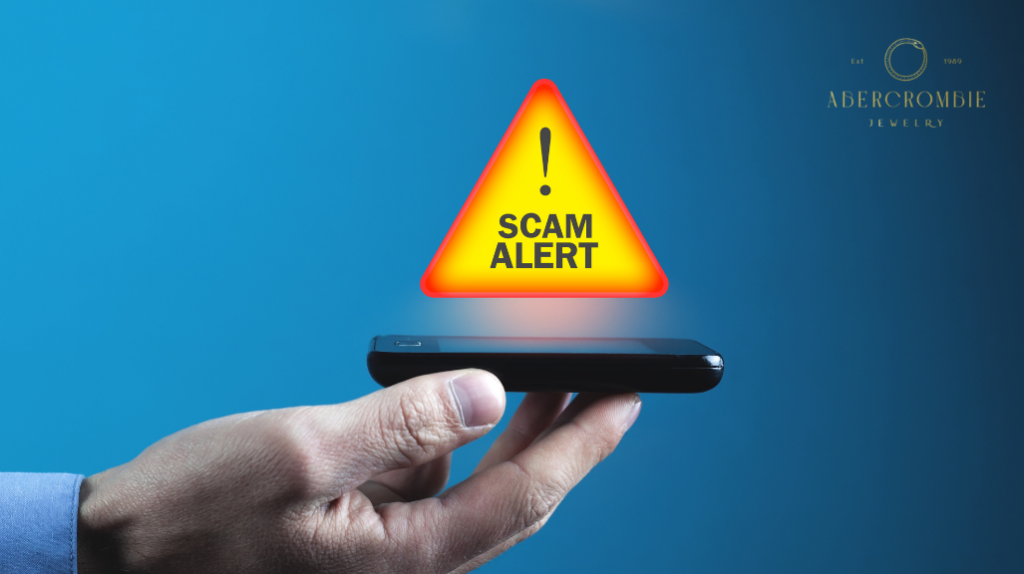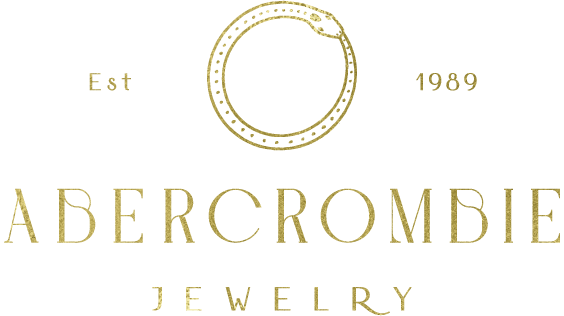
Gold selling often finds itself in the shadow of other investment liquidation options. Yet, with its tangible value and historical stability, it holds a unique position. This distinctive nature sets it apart in the financial world, offering an unparalleled opportunity for those looking to convert their assets into cash.
Critical avenues for selling gold include online buyers, local jewelers, pawn shops, and precious metal specialists, each known for its specific advantages. Online platforms offer convenience and a broad market, while local jewelers and pawn shops provide immediate offers and personal interactions. Precious metal specialists, on the other hand, bring expertise and potentially higher payouts for rare pieces.
Delving deeper, each method of selling gold presents its considerations, from understanding market value to navigating the negotiation process. The following sections will explore these avenues in detail, providing a comprehensive guide to maximizing your gold-selling experience.
What is gold selling?
Gold selling is the act of converting gold items into cash. This encompasses a variety of gold forms, including jewelry, coins, or bullion. The process involves several key steps:
- Assessing the purity and weight of the gold.
- Understanding its market value.
- Negotiating a fair price with a buyer.
Sellers aim to find a reliable and profitable avenue for their gold, considering current market prices, the items’ intrinsic value, and the buyer’s reputation. The channels through which gold can be sold include online buyers, local jewelers, pawn shops, and precious metal specialists, each offering distinct advantages and considerations.
Why sell gold?

Two main factors often motivate selling gold: financial need and market high points. Individuals might sell gold to gain immediate cash for unexpected expenses or to take advantage of favorable market conditions, aiming for maximum profit. The decision to sell gold taps into its timeless value and liquidity, providing a reliable means of asset conversion during economic fluctuations.
By carefully timing the sale and understanding market trends, sellers can significantly improve their financial outcomes, making gold selling a strategic move for many.
Financial need
Selling gold emerges as a strategic response to immediate financial needs. It’s a viable option for those looking to tackle emergency expenses, pay off debts, or require cash quickly. As a tangible asset, gold becomes invaluable during financial emergencies, offering a quick conversion from physical assets to liquid cash.
Market high points
Astute sellers monitor market conditions closely, opting to sell when gold prices soar. This timing is crucial for maximizing returns, whether the gold was acquired as an investment or inherited. By staying informed about the gold market’s ups and downs, sellers can strike at high points, ensuring they secure the best price for their gold assets.
Preparing your gold for sale
Ensure your gold is correctly prepared before venturing into the gold-selling market. This involves assessing the purity of your gold, which is crucial for understanding its true value. Look for hallmarks and stamps on your pieces, as these marks indicate quality and authenticity.
A professional appraisal can provide an authoritative valuation, offering insight into what buyers might be willing to pay. Additionally, accurately weighing your gold is essential; using a jeweler’s scale can provide the precision needed. Remember, gold is typically measured in troy ounces, which is a critical detail when setting the right price.
These preparatory steps are vital in establishing a realistic price point and facilitating effective negotiations with potential buyers, whether you’re dealing with online platforms, local jewelers, or other selling avenues.

Assessing the purity
The initial step in preparing your gold for sale involves assessing its purity. This evaluation is crucial, as it directly influences the item’s value by determining the actual gold content.
Hallmarks and stamps
Identifying hallmarks and stamps on your gold is essential. These identifiers reveal the gold’s origin, manufacturer, and, most importantly, purity level, acting as quality assurance to potential buyers.
Professional appraisal
Securing a professional appraisal provides an authoritative assessment of your gold’s value. This expert opinion can be invaluable in setting a competitive and realistic price for your items.
Read next: 9 Biggest Challenges of Selling Rings Online and How to Overcome Them
Weighing your Gold
The importance of accurately weighing your gold cannot be overstated. The weight of your gold pieces is a fundamental factor in calculating their market value.
Using a jeweler’s scale
Using a jeweler’s scale is advisable for the utmost accuracy. These scales are specifically designed for measuring small, precise weights, which is crucial when dealing with valuable metals like gold.
Understanding troy ounces
A key aspect of selling gold is understanding troy ounces, the standard unit of measurement for precious metals. Familiarity with this unit is essential for accurately determining your gold’s weight—and thus the value—.
Where to sell gold?

Choosing where to sell gold involves exploring various avenues with distinct advantages and points to consider. Online buyers provide the ease of transactions from the comfort of your home, reaching a broad audience. Precious metal specialists offer specialized knowledge and may more accurately value unique or high-purity gold items.
Auction platforms are ideal for rare or antique pieces, with the potential for competitive bidding to increase prices. Local jewelers and pawn shops allow for direct negotiation and immediate payment, though their offers vary greatly. They additionally sell at gold parties or through independent vs. chain stores, which present different experiences in terms of service and potential value. Making the right choice depends on the nature of your gold, how quickly you need to sell, and your preference for personal interaction or online convenience.
Online buyers
Online buyers offer a streamlined, convenient way to sell gold. You can reach a vast audience and secure competitive offers without leaving your home.
Precious metal specialists
Precious metal specialists possess profound knowledge in evaluating gold, often yielding higher prices for pieces of unique quality or rarity due to their expertise.
Auction platforms
Auction platforms provide a dynamic marketplace where sellers can list gold items, attracting bids from multiple buyers that can increase prices.
Local jewelers
Local jewelers present the opportunity for face-to-face negotiation, enabling sellers to discuss their gold’s value in person and receive immediate payment.
Independent vs. chain stores
Comparing independent stores with chain stores, the former may offer more personalized services and potentially better prices, whereas the latter offers a sense of reliability and standardized processes.
Pawn shops
Pawn shops are a quick source for selling gold, offering fast cash offers. However, they may only sometimes provide the best value compared to other options.
Immediate cash offers
Immediate cash offers are common at pawn shops and some local jewelers. They are suited for sellers in urgent need of cash, albeit possibly at a lower value.
Gold parties
Gold parties, often hosted by friends or businesses, create a casual setting for selling gold. They combine the social aspect with the opportunity to sell, though the informality may affect the price negotiation.
Hosted by friends or businesses
Events hosted by friends or businesses, such as gold parties, offer a novel and social avenue for selling gold, though the setting may influence the seriousness of offers received.
How to Sell Gold?

Successfully selling gold involves several crucial steps: setting a price requires comprehensive market value research to establish a fair asking price. It’s important to factor in any sentimental value, though the primary goal should align with the prevailing market rates. The process continues with negotiating with buyers, where presenting your price may lead to counteroffers.
This negotiation phase requires a blend of assertiveness and openness to achieve a deal that benefits both parties. The final step, finalizing the deal, encompasses accepting an offer, exchanging the gold for payment, and completing any necessary documentation. This systematic approach is designed to navigate the intricacies of the gold-selling market, empowering sellers with the knowledge to make informed decisions and achieve the most favorable outcomes.
Setting a price
Setting a price is the cornerstone of the gold selling process, requiring a careful balance between market value and personal valuation.
Market value research
Market value research is pivotal. It provides a solid foundation by aligning your asking price with the current dynamics of the gold market.
Factoring in sentimental value
While factoring in sentimental value can elevate your valuation, maintaining an objective stance on the market value is essential for a successful sale.
Negotiating with buyers
Negotiating with buyers demands a strategic approach. You present your asking price and discuss the gold’s worth.
Counteroffers
Being receptive to counteroffers is a crucial aspect of negotiation, necessitating flexibility while holding firm to your valuation criteria.
Finalizing the deal
Finalizing the deal marks the culmination of the selling process, which involves accepting an offer, securely exchanging gold for payment, and completing any requisite documentation.
Avoiding scams

Avoiding scams is critical to selling gold. Vigilance is vital in identifying red flags, such as offers that seem too good to be true or buyers who use pressure tactics. Sellers need to verify the credibility of potential buyers by diligently researching online reviews and confirming business accreditation.
This careful vetting ensures a secure transaction, safeguarding sellers from potential deceit. Being well-informed and cautious empowers sellers to navigate the gold market confidently, securing a safe and beneficial selling experience.
Recognizing red flags
Identifying red flags early on is crucial for protecting oneself against scams. Red flags serve as a warning signal for potentially dubious transactions.
Too good to be valid offers
Be wary of offers that seem too good to be true, as they often indicate a scam, necessitating a closer examination of the buyer’s intentions.
Pressure tactics
Pressure tactics employed by buyers, intended to hasten the selling process, should raise immediate concerns about the buyer’s credibility.
Verifying buyer credibility
Verifying a buyer’s credibility is essential, and it involves a thorough investigation into their transaction history and overall reputation.
Online reviews
Consulting online reviews offers valuable insights from previous transactions, shedding light on the buyer’s reliability and business practices.
Business Accreditation
Business accreditation, such as a Better Business Bureau (BBB) rating, measures the buyer’s legitimacy and ethical standing in the industry.
After the sale

Once the gold sale is complete, several vital steps should be taken to ensure financial health and compliance. This includes reporting income from the sale and understanding the tax implications. Sellers are faced with deciding whether to reinvest or spend the proceeds, which should be made by considering both immediate needs and long-term financial objectives.
Seeking financial advice can be invaluable, guiding how best to utilize the funds. Planning for the future, whether it involves immediate expenditures or investing for growth, is essential to maximizing the benefits derived from the sale.
Reporting income
Reporting income from the gold sale is essential, as well as ensuring adherence to tax laws and contributing to a transparent financial record.
Tax implications
Grasping the tax implications tied to the sale of gold is critical for accurately assessing the net proceeds and strategizing for tax efficiency.
Reinvesting or spending the proceeds
The decision to reinvest or spend the proceeds hinges on carefully evaluating current financial necessities versus the advantages of future growth opportunities.
Financial advice
Consulting with a financial advisor for financial advice can offer strategic insights, aiding in the wise management of the sale’s proceeds and tax considerations.
Immediate vs. long-term plans
Weighing immediate vs. long-term plans plays a pivotal role in financial planning, necessitating a thoughtful approach to allocating the sale’s proceeds for immediate needs and future security.

